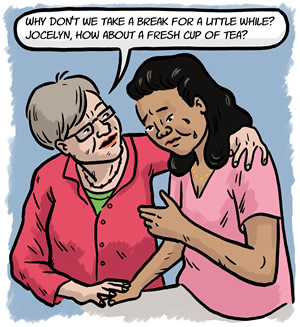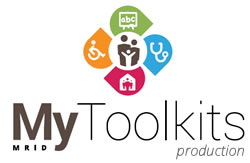As SchoolKit Clinic hosts, the school has an important role to play in welcoming all participants and helping them feel comfortable, particularly the family.
School support staff are likely to be the first ones to greet visitors to the school so its important that they know that the clinic is being held, and where, so that they can direct everyone to where they need to be.
Where possible, it is a good idea for the school counsellor to be waiting ready to greet the parent or carer, and any support people they have asked to be involved, when they arrive. This is a good opportunity for the counsellor to check on how the family are feeling about the clinic, what particular issues might be affecting them on the day (for example, they may be feeling tired after a bad night’s sleep), and to reassure them that they will be supported throughout the clinic.
The school is also responsible for bringing the child or young person from their classroom to the clinic (if they are to be present). It may be valuable for the school principal and paediatrician to take some time to observe the child in the classroom and perhaps during recreation breaks prior to or during the clinic.
Once everyone is seated, food and drink has been offered, and everyone is comfortable, the nominated chairperson will lead introductions and open discussion.
Active Participation
During clinic discussions school staff will participate and contribute in a number of ways:
- The school principal or another member of the senior executive will brief the paediatrician and health team about the specifics of the child’s health and psychosocial situation and the particular issues it is hoped can be addressed for them. They will describe their understanding of how these difficulties impact on the child, the learning environment and the family. They will explain what they know of the family situation and what strategies for change have been tried to date.
- Generalised quantitative data around learning and behaviour drawn from within the school and the wider community can be presented at the clinic to help inform decisions.
- As discussion progresses different school staff members – the child’s teacher, the school counsellor – will be asked to contribute about what they have experienced and observed in their interactions with the child.
- At all times, school staff must be very conscious of the fact that they are talking about people who are in the room – the child and their family. It is important that while they’re talking they keep checking with the parent or carer that they are not misrepresenting anything, for example, by asking them ‘Do I have that right?’ and inviting their input before continuing.
- The school principal will ask lots of questions. Sometimes this might mean halting the flow of conversation to ask that something is clarified and explained more simply. Sometimes it will mean asking for the input of other school staff. Most often, it will mean asking the family open questions that help define the family’s hopes, such as, ‘What would you like to see your child achieve at school over the next year or so?’; and others that get to the core of the issue at hand, for example, ‘What are the things that your child really likes above all else?’ or ‘Are there specific things you’ve noticed at home that prompt your child to escalate their behaviour?’.
- All school staff will do lots of active listening. Listening closely is when staff will learn a great deal about the medical considerations for a child, for example, what medications they are taking and how changing them might impact their behaviour. Listening closely – with an open mind – is when school staff have the opportunity to gain some critical insight into how they can alter their own practices to better support the child.
- The school principal, in particular, but other school staff as well, will offer suggestions and contribute ideas throughout the clinic about what existing strategies might be modified, or what new strategies might be put in place, to help and support the family and care for their child.
- All school staff are encouraged to take notes about whatever information might be useful to them in their interaction with the child and the family.
Throughout the clinic the school principal or another senior staff member are fully prepared to take control of the meeting when and as appropriate. It might be necessary, for example, that they call a break (so that emotions can settle), ask a person to leave, or make it clear that a matter will be followed up privately.

The school counsellor (or another appropriate staff member) provide support to the family during the clinic by being observant about how they are managing. This might mean it is the school counsellor who suggests they need a break. Or it may be them who stops the flow of conversation to ask the parent or carer, for example, ‘How do you feel about what is being proposed?’ or ‘Do you understand what the doctor is saying?’.
Concluding With Clear Agreement
It is important that all school staff come away from a SchoolKit Clinic with a clear understanding of the agreed management plan that will be put in place to meet the needs of the child and their family, the various different things that will be done by different people in the group, and what actions are required of them specifically. Everyone in this partnership has a role to play in achieving the desired outcomes.
A new way of managing a child’s behaviour may be trialled, for example. In this case it is important that both the child’s teacher and their parents or carer understand how this new strategy will work and be consistent in the way they put it into practice. They may agree to talk again regularly or on a specified date.




